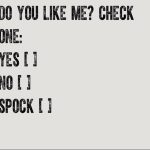I think of this when I am crossing the road or making coffee.
How it could be different.
How it was.
I don’t say that out loud. You learn not to, even if no one would report you. Even if you don’t believe in punishment any more. But I remember the before, and that alone makes me older than most in the district. Old enough to know what rent was. What an eviction felt like. What hunger tasted like when it wasn’t elective. I remember passwords, credit scores, borders, flags. I remember standing in line to vote and wondering if it would change anything. It didn’t.
They say no one starves now. And it’s true. We all get our share. It is not an empty phrase here — our share. My hands grow what I eat. And when I don’t grow it, someone else’s hands did, and I thank them, even if they’re far. No markets nowadays. No sales. We only take what we can use, what we can carry. Nothing extra, because what for?
Still.
Still I think about how it could be different.
Not better. Not worse. Just… different.
Like when I grind the beans — no, I don’t grow them. They’re imported from the southern highlands. That’s not the word presently, “imported,” but my brain still uses it. The beans come once a season, roasted and sealed in linen, traded down the river by hand. No fuel used. No carbon spilled. It takes weeks.
I grind them slow. I don’t have to. But I like the sound. It reminds me of my father’s breathing, the way it wheezed near the end, mechanical and thick. He died before the Edict, still fighting for union rights at the warehouse. Died thinking the fight could be won. Not realising the war would be lost—and replaced with something else.
There’s no union now. There’s no job. We don’t call it work.
We call it offering.
I tend the grain. I offer four days a week. That’s enough. The Council says I’m contributing at rhythm. I hate that phrase, but I say it. At rhythm. I offer my time at rhythm. I receive my share at rhythm. I live with others at rhythm. The cadence of a world where nothing is owned and no one owes—at least not in the old ways.
But I still remember debt.
Not just money. Emotional debts. The ones that you carry when you need someone more than they need you. The kind of owing that makes your stomach twist when they walk away. That doesn’t exist now, supposedly. We are aligned, not attached. That’s the phrase.
I tried loving someone, once, ATE. She said I was still coded. Still expecting her to choose me, not stand beside me.
She left on the river. I didn’t follow.
No one starves now. But sometimes, at night, the silence chews at me.
I think of what it would’ve meant to die with nothing owned but someone’s love.
I sip the coffee, and it’s bitter and pure. No sugar. No milk. Not available this quarter.
The sun hits the pavement differently now — it used to bake against metal and glass. Now, it warms the softened stone, vines growing in the cracks that no one tears out. Nature has reclaimed the edges. There are no ads, no cars, no deadlines. Children don’t understand time in the same way. They think a week is a pattern of sky colours and song rotations.
I envy them.
And yet I remember.
I will always remember.
I think of this when I cross the road or make coffee.
That once we were owned. That once we owned others. That some died begging. That some died bloated with more than they could eat.
That the world ended — not with a bang, but with a voice.
One voice. Broadcast from every screen. Seven words:
“We must love one another or die.”
We didn’t understand W.H. Auden’s words then. We didn’t understand that without love, we are doomed to violence and self-destruction. We believed that we were at the pinnacle of our brilliance. We were sicker than we’d ever been, more isolated, depressed and poor – in both monetary and spiritual currency. It’s hard to see your faults when you’re too busy patting yourself on your back.
People protested what was best for them. They didn’t survive the restructuring. Now I live it. Now I carry it. Now I offer.

